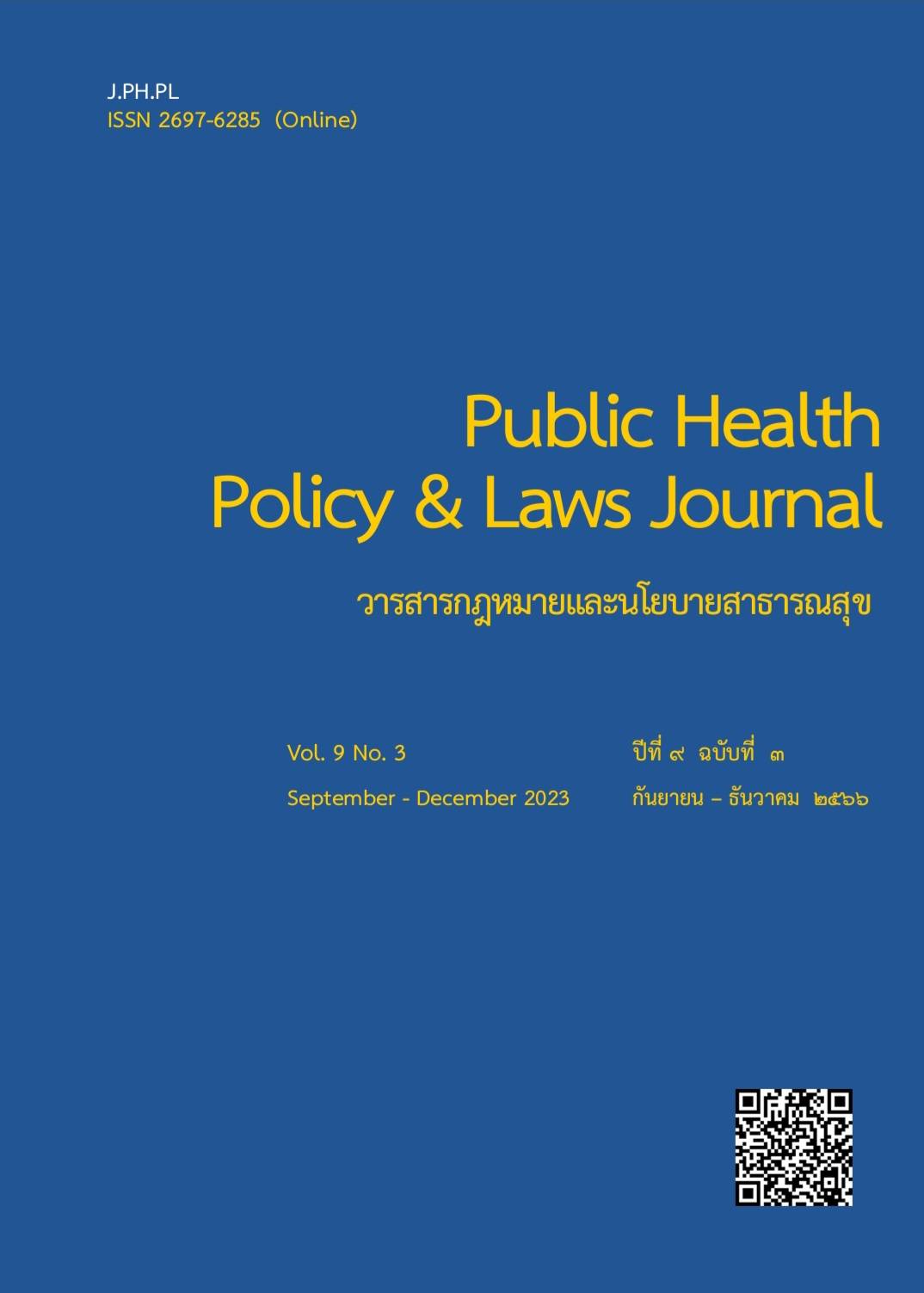Situation of Illegal Online Advertising in Aesthetic Medical Clinic, Chachoengsao Province.
Keywords:
aesthetic medical clinic, online advertising, entrepreneursAbstract
The objective of this research is to study the situation and analyze challenges in controlling illegal online advertising in aesthetic medical clinics in Chachoengsao province. The researchers collected online advertising data from all 33 clinics for a period of one month. It was found that all clinics used Facebook as a channel for advertising, along with advertisements appearing on other platforms such as Instagram, Line, Twitter, Website, YouTube, and TikTok, would also be posted on Facebook. This research chose to collect data from advertisements on Facebook to examine the issues of illegal advertising and conduct interviews with 6 entrepreneurs regarding their opinions about illegal online advertising. The research findings revealed that out of the 499 clinic advertisements on Facebook, 353 of them were illegal (70.74%). Entrepreneurs attributed the illegal actions to business competition and insufficient knowledge and understanding of advertising laws. They suggested improvements in the approval process for advertisements to be faster and more consistent nationwide. They also recommended about providing training programs to enhance knowledge and the developing up-to-date advertising guidelines and implement artificial intelligence technology for detecting inappropriate words in advertisements. The findings of this study can be used as data for dissemination and knowledge-building to ensure the correct practices among entrepreneurs, as well as for planning future management of illegal advertising issues.
References
Atinun, T. (2019). Legal measures on regulation beauty clinics business operation. Knowledge Bank at Sripratum University. http://dspace.spu.ac.th/handle/123456789/6206
Boonsin, C. (2022). Prevalence of illegal online advertisements among aesthetic medical clinics in Petchabun province. Thai Journal of Pharmacy Practice, 14(2), 416-423.
Chachoengsao Provincial Public Health Office. (2023). Chachoengsao province establishment database. http://203.157.123.7/fda8riew/
Consumer Protection Act B.E. 2522. (4 May 1979). Royal Gazette. No.96 Part 72A Special edition, pp. 20-47.
Consumer Protection Act, 2nd B.E. 2541 (24 March 1998). Royal Gazette. No. 115 Part 15A, pp. 1-9.
Department of Health Service Support. (2018). Guidelines for reviewing and approving advertisements or notices related to a sanatorium. https://hss.moph.go.th/ show_topic.php?id =2631
Drug Act B.E. 2510. (20 October 1967). Royal Gazette. No. 84 Part 101A, pp. 7-68.
Medical Council of Thailand. (2006). Announcement of Statement of Medical Council of Thailand No. 50/2549 on words prohibited in advertising. https://www.tmc.or.th/ download/50_49.pdf
Medical Device Act B.E.2551. (5 March 2008). Royal Gazette. No. 125 Part 43A, pp. 25-64.
Ministry of Digital Economy and Society. (2022). Thailand Internet User Behavior 2022. https://www.etda.or.th/ getattachment/78750426-4a58-4c36-85d3-d1c11c3 db1f3/IUB-65-Final.pdf.aspx
Muengmeesri and Na Nongkhai. (2015). Perception of stakeholders according to clinic advertising law. Quality of Life and Law Journal. 11(1), 10-16.
Notification of the Department of Health Service Support in 2019 on rules procedures conditions and cost for advertising of sanatoriums. Royal Gazette. No. 136 Part 289D Special edition, pp. 44-49.
Pacharathip, J. (2019). Prevalence of illegal online advertisements among aesthetic medical clinics in Mueang district within a southern province. Thai Journal of Pharmacy Practice, 11(1), 237-246.
Sutram and Chaiphanawan. (2019). Obstacle in the enforcement of the Health Facility Act 1998 for advertisement control. Kasem Bundit Journal, 20(2), 200-209.
Sanatorium Act, 4th ed., B.E. 2559. (20 December 2016). Royal Gazette. No. 133 Part 107A, pp. 41-49.
Downloads
Published
How to Cite
Issue
Section
License
Disclaimer and Copyright Notice
The content and information presented in articles published in the Journal of Law and Public Health Policy represent the opinions and sole responsibility of the respective authors. The editorial board does not necessarily agree with or assume any responsibility for the views expressed.
All articles, data, content, images, and other materials published in the Journal of Law and Public Health Policy are the intellectual property of the journal. Any individual or organization wishing to reproduce, distribute, or otherwise use the entirety or any part of such materials must provide proper citation.





